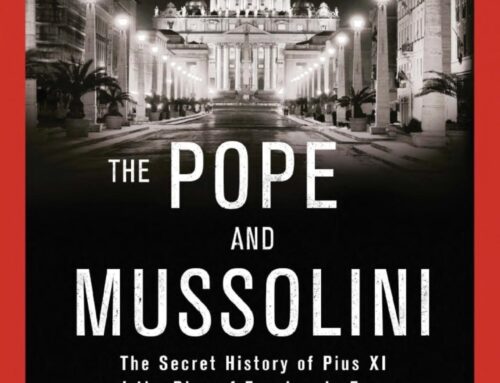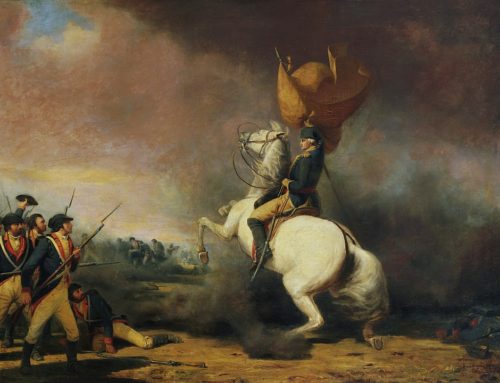By Lynne Olson
Personal Thoughts
For me, the struggle against Fascism represented the clearest example of good versus evil. I would have loved to have actively participated on the side of those who favored Intervention. Lynne Olson did a wonderful job in chronicling the struggle to overcome the forces of Isolation and help Great Britain in her struggle against Nazi Germany.
If I had a dream role, I would play the role of Harry Hopkins. Harry was literally “the man who came to dinner.” Harry at FDR’s request lived in the White House. He was the president’s closest confident, traveling to London and Moscow as the president’s personal envoy.
Background
Until the fall of France in 1940, most Americans favored isolation. Large blocs held strong anti-British positions, Irish-Americans, German-Americans, and Italian Americans. Furthermore, many Americans felt that East Coast bankers had maneuvered America into World War I especially after the Ney Hearings. The failure of almost every European country to honor their debts to America following World War I reinforced disenchantment with being involved in European affairs. Finally, the prevalence of dictatorships on the European Continent undermined Wilson’s argument that our entry into World War I “would make the world safe for democracy.”
In order to summarize this book, I have provided a table that highlights the role and position of the isolationists and interventionists. Also, I added a time-line of the important legislative enactments from 1920 until our entry into World War II. Providing Britain 50 aging destroyers, Lend Lease, the passage of key amendments to the Neutrality Act, and the enactment of the draft were sharply contested.
Chicago was the epicenter of the isolationist movement. General Woods, the Chairman of Sears Roebuck, and Colonel Robert McCormick the owner and publisher of the Chicago Tribune were key players on the isolationist side.
Surprises
I was shocked that key friends and subordinates of General George Marshall strongly advocated the isolationist position. The author argues that General Wedemeyer, General Hap Arnold, and General Truman Smith all leaked key information to the isolationists and remained friends with Lindbergh. In hindsight, all three could have been guilty of treason given the information that they disseminated. Secretary of War Henry Stimson had to repeatedly intervene with Marshall to highlight his discomfort with these associates claiming that “their defeatist statements about Britain were unwarranted.”
Key Legislative Issues
Every step to help Britain and prepare for war was fought over. Roosevelt won by very tiny margins. The role of FDR remains ambiguous. I can fully understand why some people can be critical of his stewardship during the period prior to World War II. On the other side, FDR was the consummate politician who recognized that suffering a legislative defeat would undermine his presidency. Secretary Stimson admonished FDR that the president “had to lead” and not follow public opinion. The “foxy” FDR did not follow this advice.
Stated differently, FDR appointed key Republicans, Henry Stimson, Secretary of War, and Frank Knox, Secretary of Navy, to lead the charge. This was a very clever move because it created bi-partisan support.
Some of the key legislative steps: 1) Destroyer for bases agreement with Great Britain 2) Lend Lease 3) Passing amendments to Neutrality Act 4) Passage of Selective Service Act by one vote after the fall of France.
FDR learned from his disastrous mistake in the Court Packing Fight in 1937 and trying to unseat conservative Democrats in 1938.
Charles Lindbergh
Lindbergh was the “face” of isolationism. Over and over again Lindbergh gave speeches and radio addresses to highlight his opposition to supporting Great Britain. Because of his aeronautical experience, his warnings that Nazi Germany would defeat Great Britain carried great weight. Furthermore, he underestimated drastically America’s ability to develop a first rate air capability. By D Day, America and Britain had total air superiority over Germany—something that Lindbergh never conceived.
Lindbergh’s wife, Anne Morrow, appeared quite weak. She came from a very prestigious family who were active on the interventionist side. Instead of reigning in her husband, Anne appeared to acquiesce on every occasion. Also, she did not demand that Lindbergh take out offensive language against Jews in his Des Moines speech. These comments have tarred Lindbergh’s reputation henceforth.
Winston Churchill
The author highlighted Churchill’s frustration with FDR’s procrastination. Churchill famously said “In the end America will always do the right thing, after exhausting all other options.” Sadly, this was true. Almost, at the last moment we provided need aid to Britain. Fortunately, we were dealing with Churchill, a man of incredible vision, rather than either Lord Halifax or Neville Chamberlain.
Wendell Willkie
The Republican candidate for presidency in 1940 was a great and courageous person who is now largely forgotten in history. Over and over again, Willkie made personal sacrifices to help FDR and the interventionist.
The Republicans choosing an interventionist as their Presidential candidate in 1940 helped Roosevelt take more risks in helping Great Britain.
My surprise was learning that both FDR and Willkie deliberately underestimated their willingness to help Britain in order to win the 1940 election. FDR was depressed by his narrow popular vote victory over Willkie.
Henry Stimson
Stimson served in the administrations of Howard Taft, Warren Harding, Calvin Coolidge, Herbert Hoover, and Franklin Roosevelt. Everyone recognized that he was a man of principal and integrity. His interventionist position was far ahead of Roosevelt.
American Isolationism
Starting with America’s rejection of the Versailles Treaty and refusal to enter The League of Nations, most Americans wanted to return to isolation policies pre-World War I.
Until the fall of France, May 1940, Americans overwhelmingly rejected getting involved in European affairs. After the fall of France, many Americans felt that Britain could not survive. Thus, providing material help would undermine American rearmament efforts.
Roosevelt understood that he could not be “far ahead of the public.”
Anti-Semitism:
Most American held strongly anti-Semitic views. Almost all isolationists were particularly vocal in their denunciation of Jews. The unwillingness of America to take in even German Jewish children is heartbreaking.
Many interventionists were also anti-Semitic. Franklin Roosevelt public stated that America was a Protestant nation. Jews and Catholics should be aware that they resided in America “at the sufferance of Protestants.”
Very important to interventionists was that the focus that World War II was about democracy and was not a “Jewish” war. America and Great Britain turned a blind eye to the Holocaust.
Hollywood
Tremendous pressure on Hollywood not to present any anti-Nazi films. Nazi persecution of Jews was glossed over. Instead, German treatment of Jews was treated as a non-democratic response to alien influences. Only non-Jewish Charlie Chaplin was willing to expose Nazi persecutions.
Almost all of the Hollywood moguls were Jews from Eastern Europe. Because they were immigrants to the United States, they were afraid of the “charge that they were Jews first, and Americans second.”
Press Coverage
Press coverage of Nazi atrocities was scant. Exceptions were coverage of Crystal Night where some 800 Jewish synagogues were destroyed.
Only 3 percent of newspapers were owned by Jews; however, isolationists claimed that the press was controlled by Jews.
Summary
Many of my friends have expressed their enjoyment of Garden of the Beasts. I argue that you will find this book equally enjoyable.
Key Isolationist Leaders
Name
Role
Charles Lindbergh
Most Celebrated Leader American First Movement. Accepted German Medals
General Robert Wood
Chairman Sears Roebuck. Found American First Movement
Senator Robert Taft
Mr. Republican. A Leading Candidate for Republican Presidential Nomination (1940-1952)
State Department
Actively Opposed Aid to Great Britain
Cordell Hull
Secretary of State
Breckenridge Long
Assistant Secretary of State: Backed Extremely Restrictive Immigration Policy. Put obstacles in the way of Jewish immigration
Sen Burton Wheeler (D)
Leader Isolationist Wing. Opposed FDR Court-Packing Plan
Henry Ford
Founder Chairman Ford Motor Company
Colonel Robert McCormick
Owner, Chairman Chicago Tribune
General Truman Smith
Senior Intelligent Officer Under George Marshall
Gen Hap Arnold
General of Army; General Air Force
Gen Albert Wedemeyer
Chief of Intelligence
Congressman Martin Dies
Chairman Committee to Investigate Un-American Activities
Gov Tom Dewey
Republican Presidential Nominee 1944 &1948
Ambassador Joseph Kennedy
Ambassador to Court of St. James. Pro German, anti-Churchill
Father Coughlin
Radio Priest with 40 million weekly listeners
Avery Brundidge
Chairman U.S. Olympic Committee
Key Interventionist Leaders
William Allen White ®
Owner Emporia Gazette. Established Committee to Defend America by Aiding Allies
Felix Frankfurter
Supreme Court Justice. Close friend and confident FDR
Henry Morganthau
Secretary Treasury. Close friend and confident FDR
Harry Hopkins
Man who came to dinner! Close friend and confident FDR
Harold Ickes
Secretary of Interior. Number 1 detractor of Charles Lindbergh
Henry Stimson ®
Secretary War. Secretary of State
Frank Knox ®
Secretary Navy. Vice Presidential Republican Candidate 1936; Owner Chicago Daily News
Wendell Willkie
Republican Presidential Candidate 1940
Arthur Sulzberger
Publisher New York Times
Sam Rayburn (D)
Speaker of U.S. House Representatives
Key Timeline
Treaty of Versailles; League of Nations
1919-1920: US Did Not Join League of Nations and Did Not Ratify Treaty of Versailles
Great Depression
1929-1933
NYE Hearings
1934-1936: US entered World War I for profit, not policy
Neutrality Act 1930s
Prohibited transporting any persons or articles to Belligerents
Wendell Willkie Nomination
May 1940: Willkie defeated isolationist
FDR Nomination Third Term
July 1940; Defeated isolationists James Farley and VP John Gardner
Fall France
May 1940
Battle Britain
June-September 1940; Winston Churchill Becomes British Prime Minister May 1940
Destroyers for Bases Agreement
September 1940: 50 mothballed destroyers transferred to Great Britain in exchange for land rights on British possessions
Lend Lease
March 1941: Provided key material to Great Britain and subsequently to other allies. Value in today’s dollars about $ 650 Billion
Occupation Iceland
July 1941: US relieved Great Britain.
Convoy Protection
Summer 1941: US. Navy required to help Britain from starving
Undeclared Naval War
August 1941: US-Germany engage in naval belligerency
Neutrality Act 1941
Nov 1941: US vessels could navigate in combat zones



